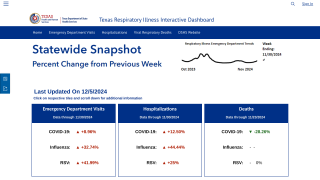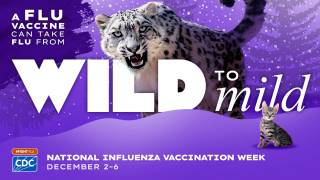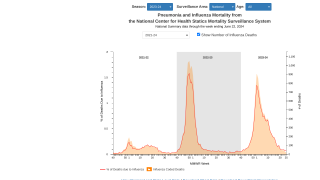Flu Shots Protect Heart Failure Patients

Numerous clinical research studies have been published supporting the U.S. CDC's strong recommendation that most people measurably benefit from influenza vaccination.
A new peer-reviewed study published in The Lancet Global Health has identified another specific benefit.
An international team led by McMaster University researchers found that influenza vaccination significantly reduces pneumonia and cardiovascular complications in people with heart failure.
The study showed that influenza vaccination reduced pneumonia by 40% and hospitalization by 15% in patients with heart failure over the entire year.
Furthermore, during the flu season in the fall and winter, the influenza vaccines reduced deaths by 20% in these patients.
While the flu has long been associated with an increased risk of life-threatening cardiovascular events, people with heart failure are already vulnerable to poor health outcomes.
"If you have heart failure, you should get your flu shot because it can save your life," said the study's principal investigator Mark Loeb, in a press release on November 16, 2022.
Major cardiovascular events are an essential contributor to influenza-associated morbidity and mortality, as influenza triggers cardiovascular events.
In addition, patients with a previous major cardiovascular event have a higher risk of a significant cardiovascular event recurrence and death than patients without a previous major cardiovascular event, wrote an accompanying editorial.
With the exponentially growing prevalence of heart failure, which already affects 26 million people worldwide, vaccination of patients with heart failure is projected to have an enormous positive impact.
Between June 2, 2015, and November 21, 2021, this study enrolled 5,129 participants and randomly assigned (1:1) to influenza vaccine and placebo.
The first co-primary outcome occurred in 380 (14·8%) of 2560 participants in the vaccine group and 410 (16·0%) of 2569 participants in the placebo group (hazard ratio [H.R.] 0·93 [95% CI 0·81–1·07]; p=0·30).
The second co-primary outcome occurred in 754 (29·5%) of 2560 participants in the vaccine group and 819 (31·9%) of 2569 participants in the placebo group; H.R. 0·92 [95% CI 0·84–1·02]; p=0·12).
The secondary outcomes of all-cause hospitalizations (H.R. 0·84 [95% CI 0·74–0·97]; p=0·013) and pneumonia (H.R. 0·58 [0·42–0·80]; p=0·0006) were significantly reduced in the vaccine group compared with in the placebo group.
But there was no significant difference between groups for all-cause death, cardiovascular death, non-fatal myocardial infarction, non-fatal stroke, and hospitalization for heart failure.
In a prespecified analysis, in which events were limited to periods of peak influenza circulation, the first co-primary outcome and the secondary outcomes of all-cause death, cardiovascular death, and pneumonia were significantly lower in the vaccinated group than in the placebo group.
Whereas the second co-primary outcome and the secondary outcomes of non-fatal myocardial infarction, non-fatal stroke, all-cause hospitalization, and hospitalization for heart failure were not significantly lower.
In summary, these researchers wrote, 'Although the prespecified co-primary outcomes during the entire observation period were not statistically significant.'
However, 'the reduction during the peak influenza circulating period suggests that there is likely to be a clinical benefit of giving influenza vaccine, given the clear reduction in pneumonia, a moderate reduction in hospitalizations, and a reduction in cardiovascular events and deaths during periods of peak circulation of influenza.'
'Taken in conjunction with previous trials and the observational studies, the collective data suggest benefit.'
The U.S. CDC encourages most people of the age of six months to get an annual flu shot.
Additional influenza vaccine information is posted at PrecisionVaccinations.com/Flu.
Study Funding: U.K. Joint Global Health Trials Scheme and Canadian Institutes for Health Research Foundation. No research conflicts of interest were disclosed.
PrecisionVaccinations publishes fact-checked, research-based vaccine news manually curated for mobile readers.
Our Trust Standards: Medical Advisory Committee
























